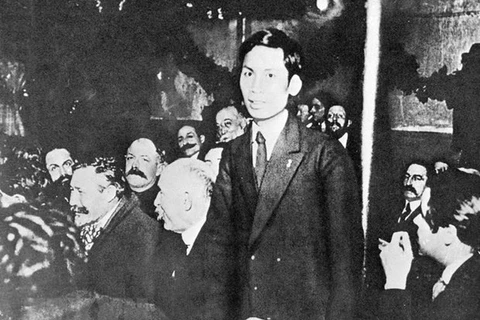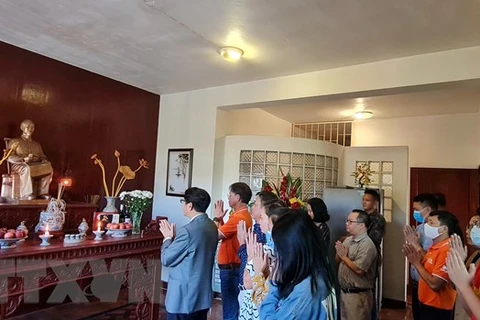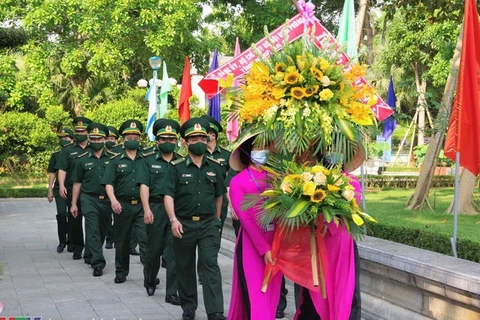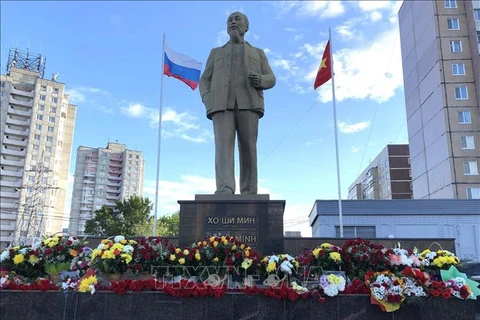HCM City (VNA) – State President Nguyen Xuan Phuc on May 19 offered incense and flowers to late President Ho Chi Minh at Ho Chi Minh Museum in Ho Chi Minh City as the country is celebrating the late leader’s 131st birthday (May 19), and 110 years since he left Nha Rong Wharf, starting his journey to search for ways to save the nation.
President Phuc also offered incense to late President Ton Duc Thang, one of the pioneers in the workers’ movement and proletarian revolution in Vietnam. Like Ho Chi Minh, Ton Duc Thang dedicated his whole life for the revolutionary cause of the Vietnamese people.
The State leader visited a photo exhibition on President Ho Chi Minh in cinematography.
The same day, Phuc and Ho Chi Minh City leaders offered flowers at President Ho Chi Minh Statute Park on Nguyen Hue Street, District 1.
 President Phuc and Ho Chi Minh City leaders offers flowers at President Ho Chi Minh Statute Park on Nguyen Hue Street. (Photo: VNA)
President Phuc and Ho Chi Minh City leaders offers flowers at President Ho Chi Minh Statute Park on Nguyen Hue Street. (Photo: VNA) Ho Chi Minh, real name Nguyen Sinh Cung and also known as Nguyen Tat Thanh, Nguyen Ai Quoc, was born into a family of patriotic Confucian scholars in Nam Dan district, in the central province of Nghe An, on May 19, 1890.
The nation was then under the yoke of French colonialists, so as a child and youth, Thanh witnessed the suffering of his compatriots and the movement against the aggressors. He developed a strong will to expel the colonialists, secure the country's independence and bring about freedom and happiness for the people.
In 1911, at age 21, he decided to leave his homeland for France to learn about western countries.
In Sai Gon he found employment as a kitchen assistant on the French passenger liner Amiral Latouche-Treville. He received an employee card under a new name, Van Ba.
From 1912 to 1917, he travelled in many countries in Asia, Europe, the Americas and Africa where he lived among the working class. He sympathised profoundly with their misery as well as their aspirations. He realised early that the Vietnamese people's struggle for national liberation was part of a common struggle around the world.
At the end of 1917, he returned to France to continue activities for the movement of overseas Vietnamese and French workers.
In 1919, under the name of Nguyen Ai Quoc, and on behalf of patriotic Indochinese nationals in France, he sent a petition to the Versailles Conference, calling for freedom for the Indochinese people and colonised peoples in general.
President Ho Chi Minh led the country to success in its struggle for national independence. On September 2, 1945, he read the Declaration of Independence, proclaiming to the world the foundation of the Democratic Republic of Vietnam, now the Socialist Republic of Vietnam./.
VNA
























